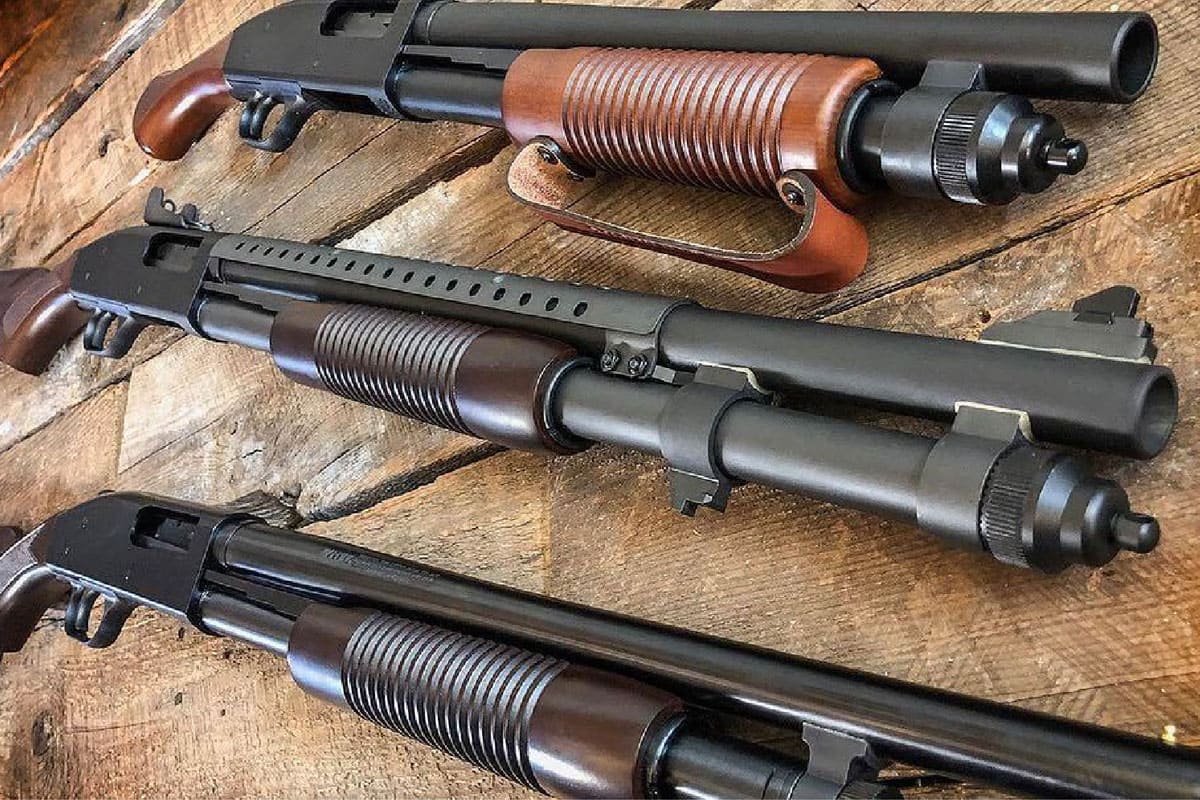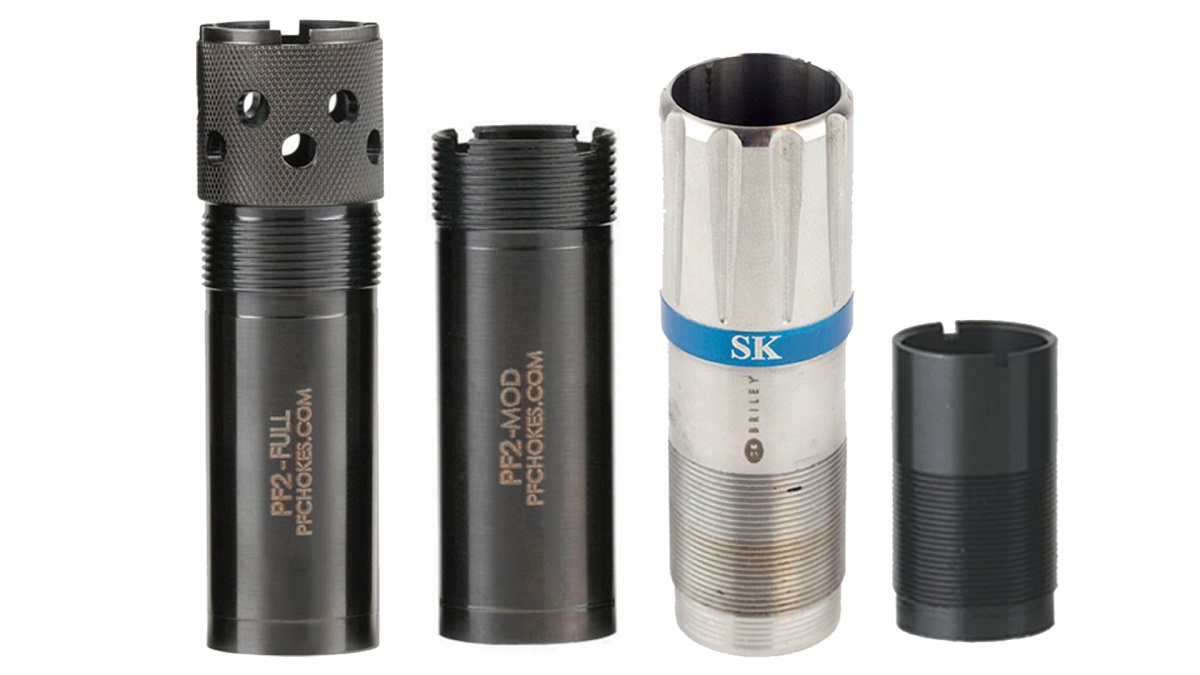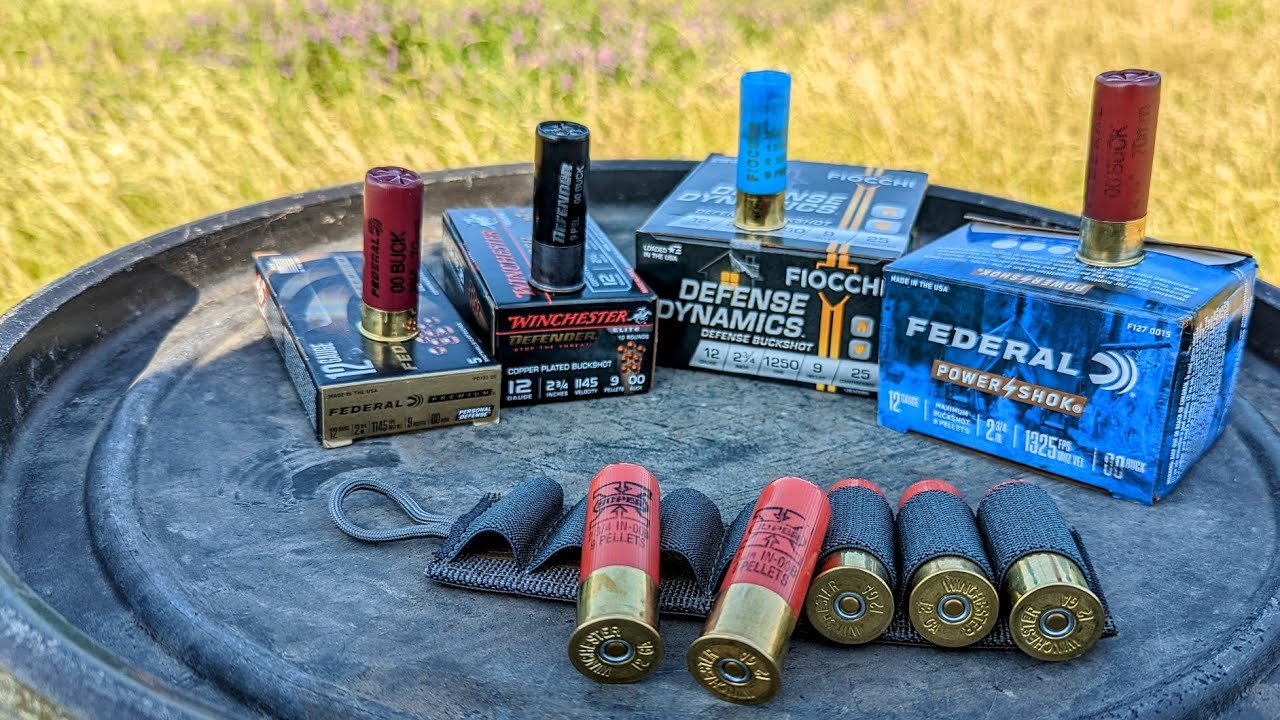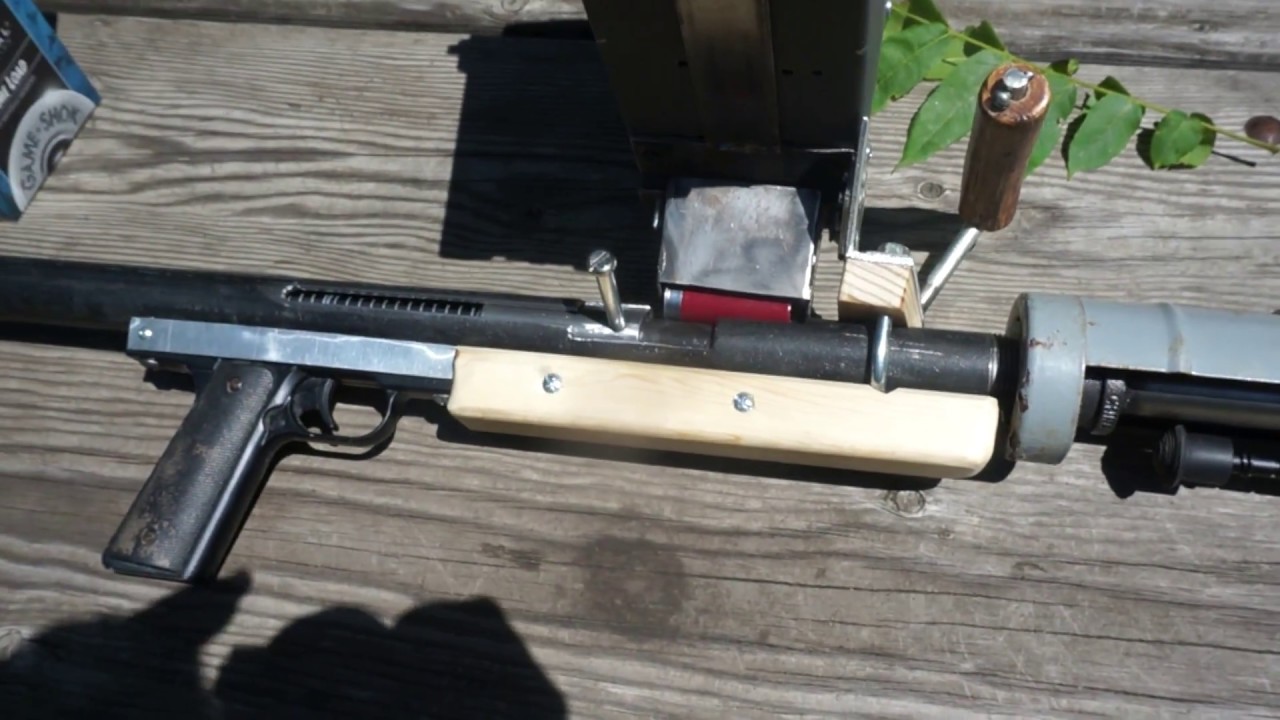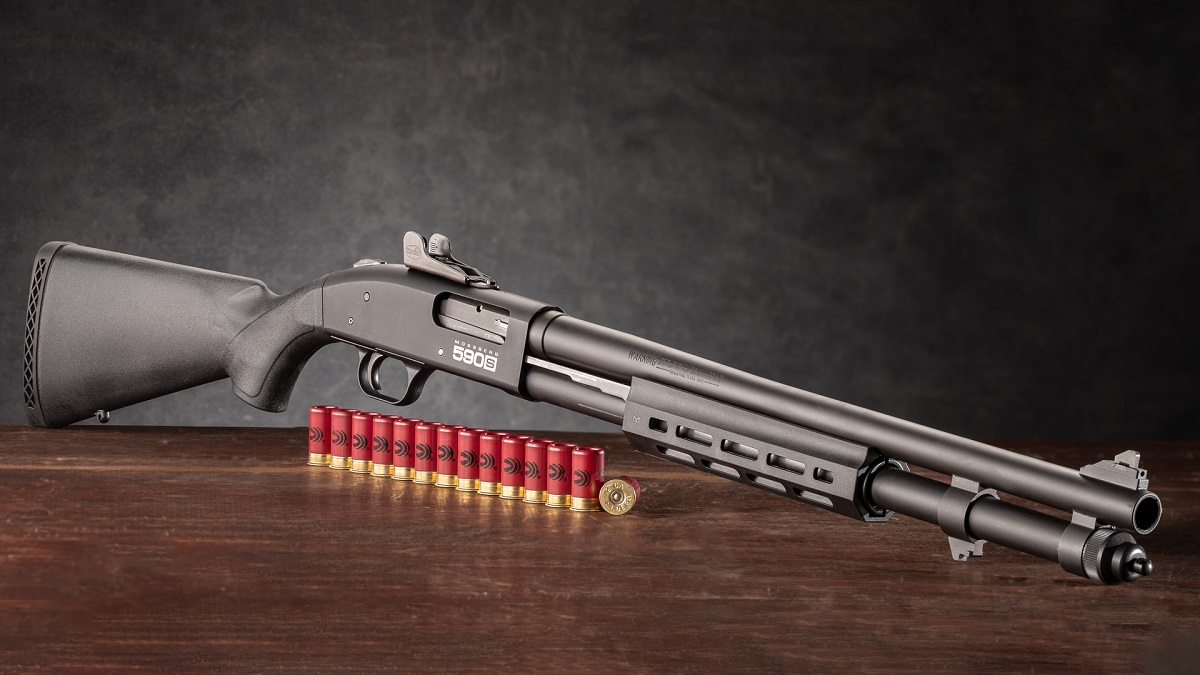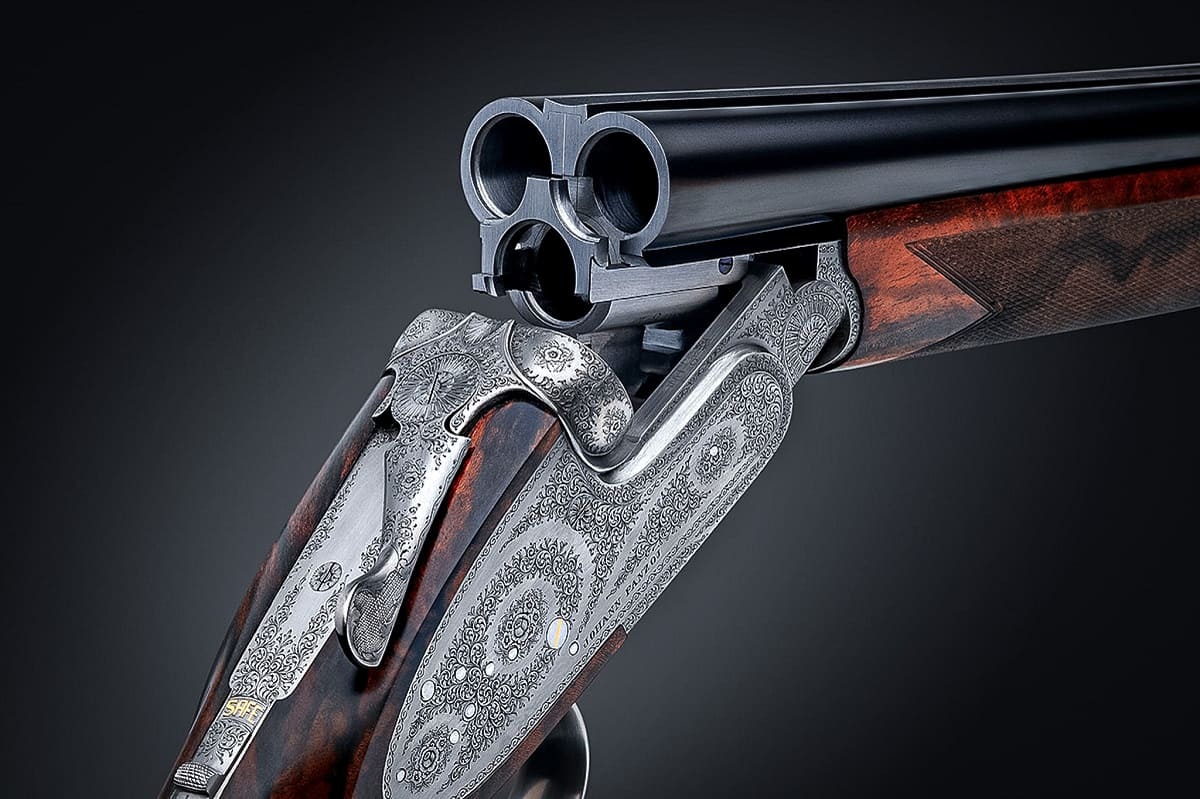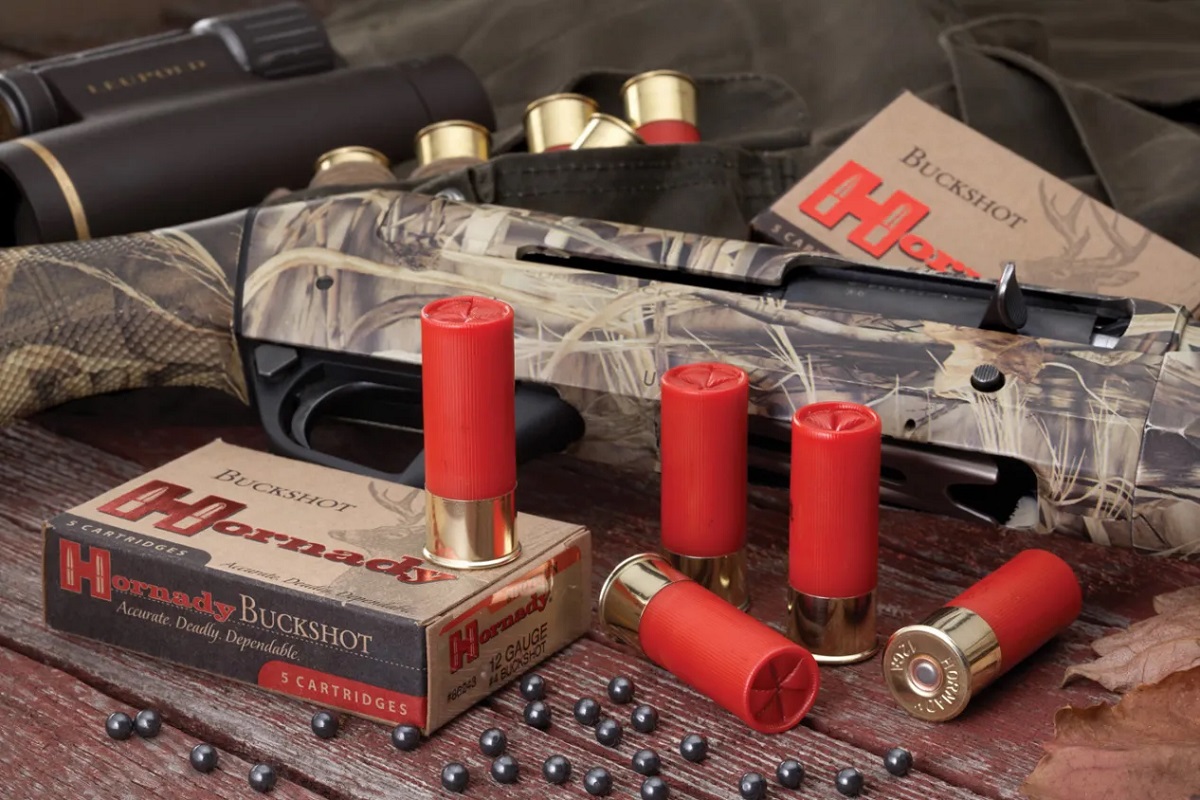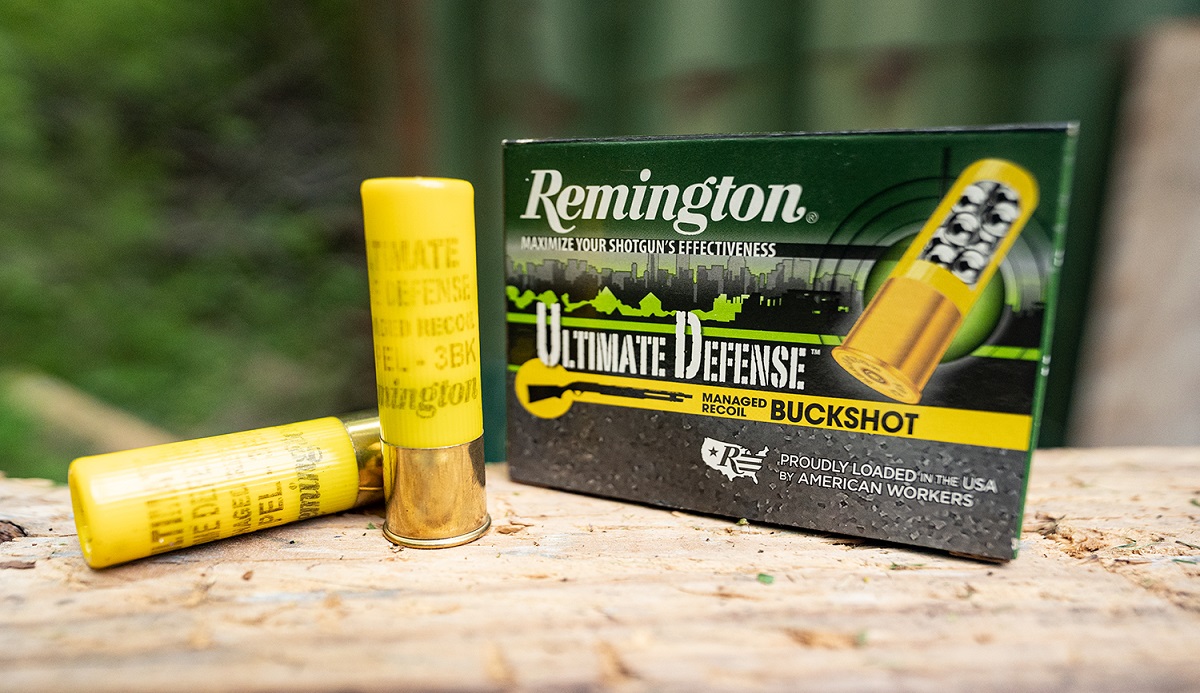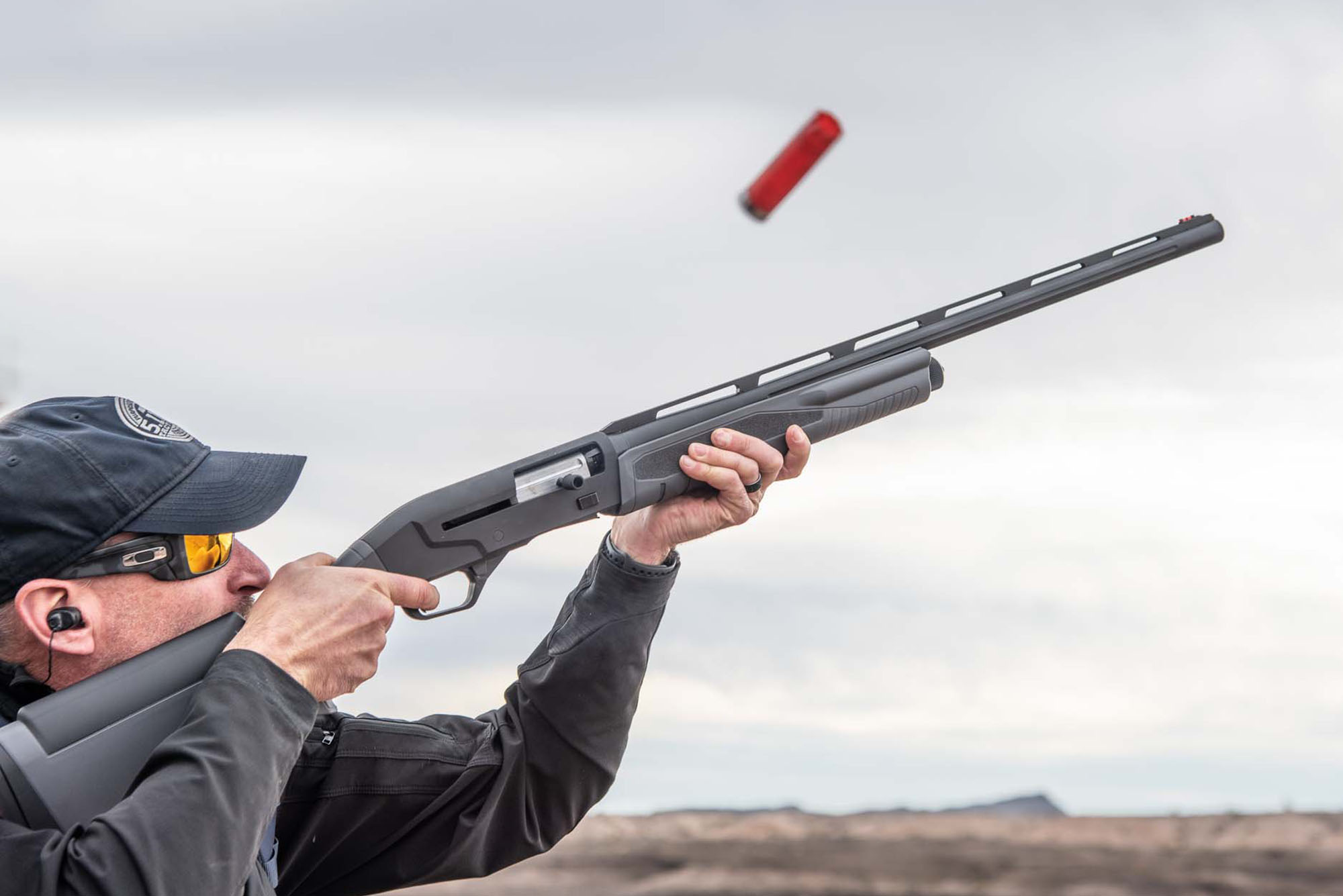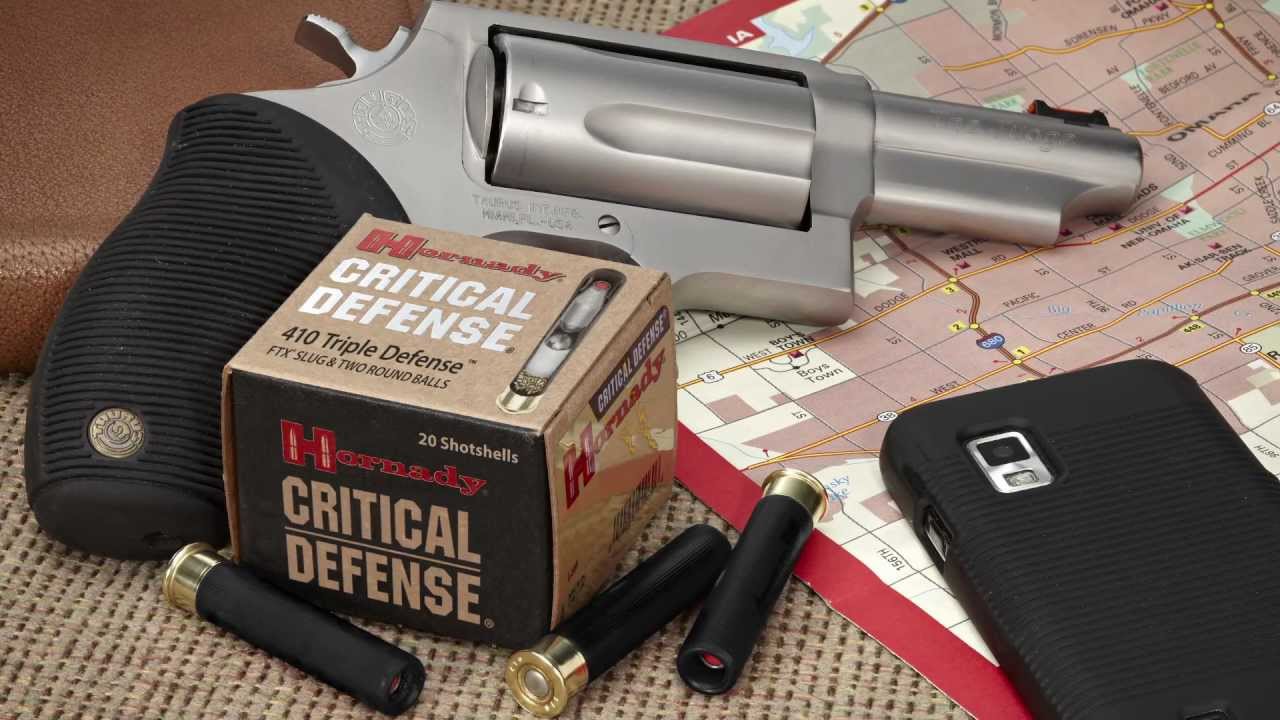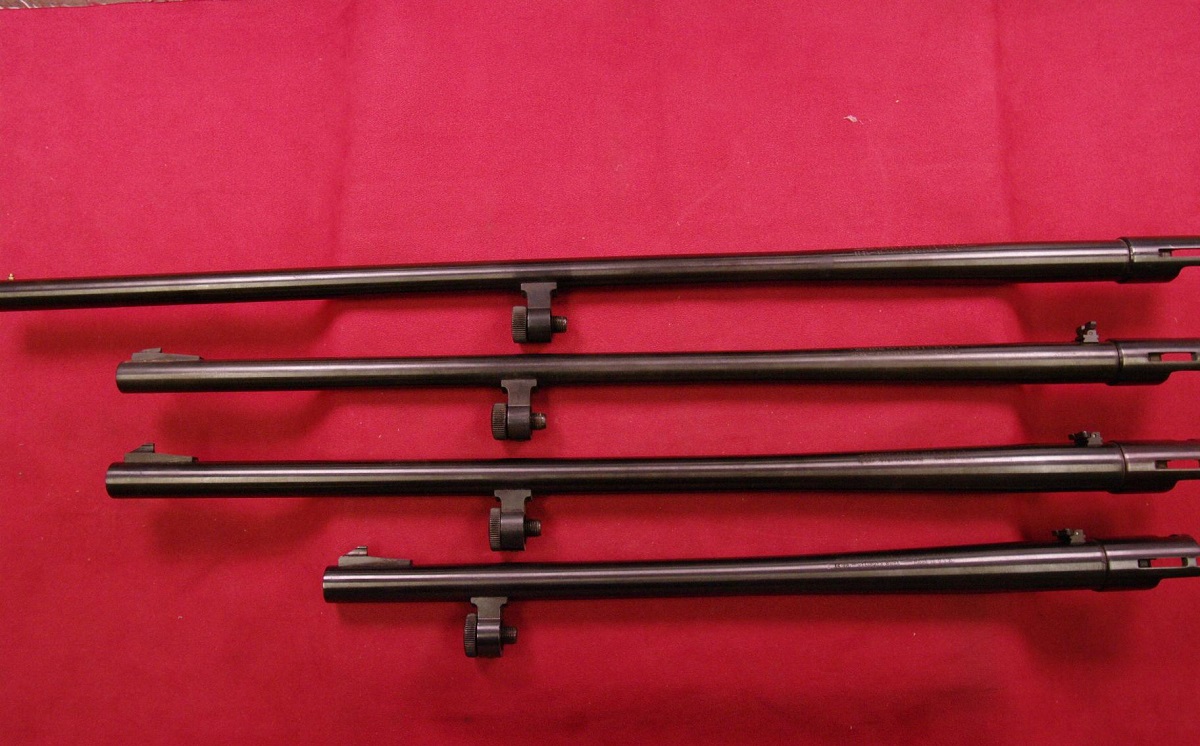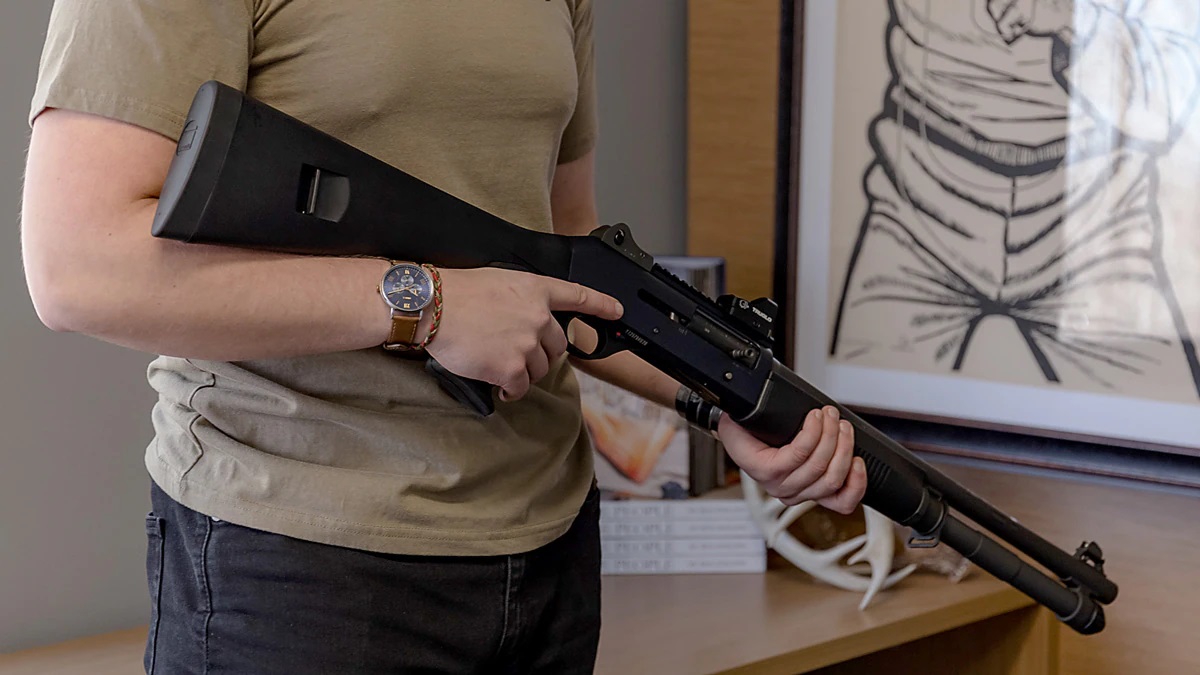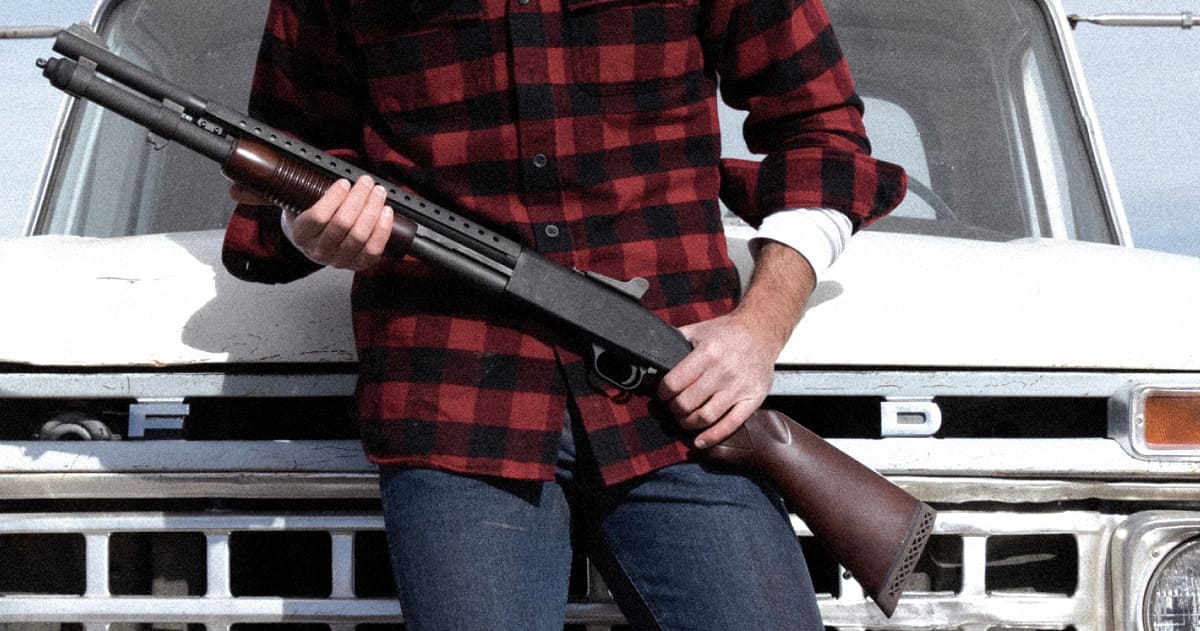Home>Home Security and Surveillance>What Shotgun Gauge Is Best For Home Defense
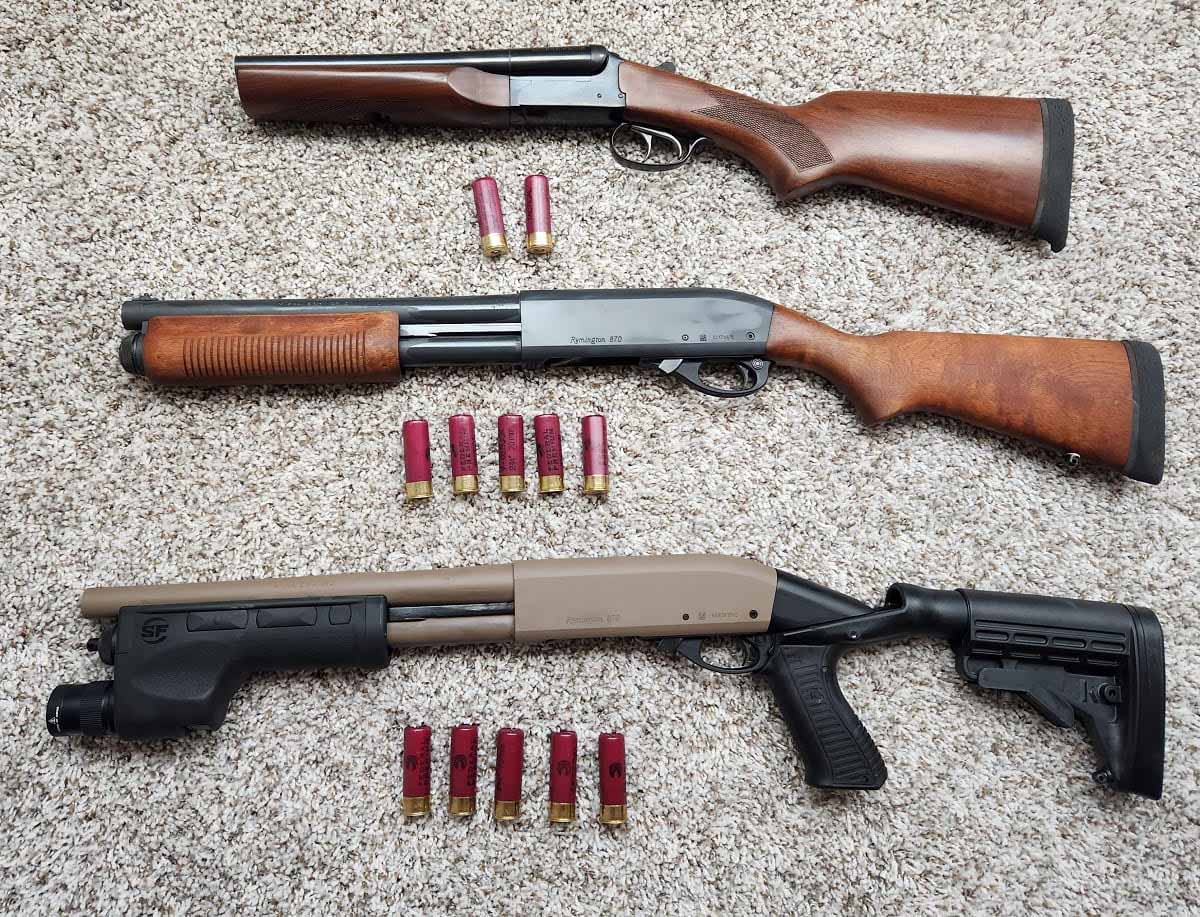

Home Security and Surveillance
What Shotgun Gauge Is Best For Home Defense
Modified: March 6, 2024
Discover the ideal shotgun gauge for home defense and enhance your home security with the best home security and surveillance products.
(Many of the links in this article redirect to a specific reviewed product. Your purchase of these products through affiliate links helps to generate commission for Storables.com, at no extra cost. Learn more)
Introduction
When it comes to home security and surveillance, having a reliable and effective defense system is crucial. One popular option for home defense is a shotgun, as it provides a powerful deterrent and can be highly effective in stopping intruders. However, when considering a shotgun for home defense, it’s important to choose the right gauge to suit your needs.
A shotgun gauge refers to the diameter of the shotgun’s bore, which determines the size of the ammunition it can fire. The most common shotgun gauges for home defense are the 12 gauge, 20 gauge, and .410 bore. Each gauge has its own advantages and considerations, so it’s important to understand these factors before making a decision.
In this article, we will explore the different shotgun gauges for home defense and help you determine which one is best suited for your needs. We will discuss the factors to consider, the pros and cons of each gauge, and provide recommendations based on expert knowledge and experience.
Before diving into the specific gauges, it’s worth mentioning that shotguns, in general, offer several advantages for home defense. The wide spread of shot from a shotgun makes it easier to hit a target at close range, even in high-stress situations. The sound of a shotgun being chambered can also act as a powerful deterrent, potentially discouraging intruders from continuing their actions.
However, it’s important to remember that owning a shotgun for home defense comes with great responsibility. It’s crucial to receive proper training, understand the local laws and regulations regarding firearms ownership, and securely store the weapon to prevent accidents or unauthorized access.
Now, let’s dive into the different shotgun gauges and explore their suitability for home defense.
Key Takeaways:
- Choose a 12-gauge shotgun for maximum stopping power in home defense, but be prepared to handle its higher recoil and larger size. It offers a wide variety of ammunition options for reliable protection.
- Opt for a 20-gauge shotgun for balanced power, reduced recoil, and better maneuverability in tight spaces. It provides sufficient stopping power and a good selection of ammunition options, making it suitable for those sensitive to heavy recoil.
Understanding Shotgun Gauges
Before diving into the specific gauges for home defense, let’s take a moment to understand what shotgun gauges actually mean. Shotgun gauges are measured in terms of the number of lead balls of the same diameter that can be produced from one pound of lead. This means that a 12-gauge shotgun can produce 12 lead balls of the same diameter from one pound of lead, whereas a 20-gauge shotgun can produce 20 lead balls.
The most common shotgun gauges for home defense are the 12 gauge, 20 gauge, and .410 bore. The 12 gauge is the most widely used gauge and offers a good balance of power and recoil. The 20 gauge is slightly smaller and offers less recoil, making it more manageable for those who may be sensitive to heavy recoil or prefer a lighter firearm. The .410 bore, on the other hand, is the smallest gauge and is often used for hunting small game or for recreational shooting.
When it comes to choosing a shotgun gauge for home defense, there are a few factors to consider. These include the power and effectiveness of the ammunition, the recoil of the shotgun, and the availability of ammunition.
Power and Effectiveness: The 12 gauge shotgun is known for its power and stopping power. It delivers a larger payload with more pellets, offering a greater chance of incapacitating an intruder. The 20 gauge, while slightly less powerful, still provides a sufficient amount of stopping power. The .410 bore, being the smallest, has the least amount of power and effectiveness compared to the larger gauges.
Recoil: Recoil refers to the backward force generated when a shotgun is fired. The 12 gauge has the most recoil, which can be a consideration for individuals with smaller frames or those who are not as experienced with handling firearms. The 20 gauge offers a reduction in recoil, making it more manageable for a wider range of users. The .410 bore has the least amount of recoil, making it suitable for those who want a light and easy-to-handle firearm.
Ammunition Availability: Another factor to consider is the availability of ammunition. The 12 gauge is the most popular gauge, so there is a wide variety of ammunition available, including specialized home defense rounds. The 20 gauge also has a good selection of ammunition options, although it may not be as extensive as the 12 gauge. The .410 bore, being less popular for home defense, may have a more limited selection of ammunition.
Understanding these factors will help you make an informed decision when selecting the shotgun gauge that best fits your needs for home defense. In the following sections, we will explore the pros and cons of each gauge and provide recommendations for home defense based on their specific characteristics.
Factors to Consider for Home Defense
When choosing a shotgun gauge for home defense, there are several factors to carefully consider. These factors will help you determine which gauge is most suitable for your specific needs and circumstances. Let’s take a look at them:
- Power and Effectiveness: One of the primary considerations for home defense is the power and effectiveness of the shotgun gauge. You want a gauge that delivers enough stopping power to incapacitate an intruder effectively. The larger gauges, such as the 12 gauge, offer more power and a greater number of pellets, increasing the chances of hitting the target. However, keep in mind that shot placement is crucial, regardless of the gauge you choose.
- Recoil: Recoil can significantly impact your ability to handle and accurately shoot a shotgun. Consider your individual strength and comfort level when it comes to managing recoil. The 12 gauge has the highest recoil, while the 20 gauge offers reduced recoil, making it more manageable for those who may be sensitive to heavy recoil or have less experience with shotguns. The .410 bore has the lowest recoil, making it easier to handle for individuals who prefer a lighter firearm.
- Firearm Size and Maneuverability: The size and maneuverability of the shotgun are essential factors to consider, especially in the context of home defense. Shotguns come in different lengths, barrel configurations, and overall sizes. You’ll want to choose a firearm that allows for easy maneuverability within the confines of your home. Consider factors such as barrel length and overall weight when making your decision.
- Ammunition Availability: Another crucial factor to consider is the availability of ammunition for the chosen shotgun gauge. The 12 gauge is the most popular gauge, meaning you’ll find a wide variety of ammunition options readily available, including specialized home defense rounds. The 20 gauge also has good ammunition availability, though it may not have the same extensive selection as the 12 gauge. On the other hand, the .410 bore may have a more limited selection of ammunition for home defense purposes.
- Personal Preference and Comfort: Ultimately, personal preference and comfort play a significant role in selecting the right shotgun gauge for home defense. Each individual may have different needs and preferences based on factors such as physical strength, prior shooting experience, and personal comfort level with firearms. It’s crucial to choose a gauge that you feel confident and comfortable using during a high-stress situation.
By carefully considering these factors, you can make an informed decision about which shotgun gauge is best suited for your home defense needs. In the following sections, we will delve into the details of each gauge – the 12 gauge, 20 gauge, and .410 bore – and provide recommendations based on their specific characteristics and suitability for home defense.
12 Gauge Shotguns for Home Defense
The 12 gauge shotgun is the most popular and widely used gauge for home defense, and for good reason. It offers a powerful and effective option for stopping potential threats. Let’s explore the key advantages and considerations of using a 12 gauge shotgun for home defense:
- Power and Stopping Power: The 12 gauge shotgun delivers a tremendous amount of power, making it highly effective for home defense scenarios. It typically fires a larger payload with more pellets compared to other gauges, increasing the chance of hitting the target and incapacitating an intruder effectively. The sheer power of the 12 gauge can be a significant deterrent to potential threats.
- Ammunition Availability: One of the major advantages of using a 12 gauge shotgun for home defense is the extensive availability of ammunition. You’ll find a wide variety of options, including specialized home defense rounds designed for maximum effectiveness in close-quarter situations. This availability ensures that you have access to reliable and effective ammunition when you need it most.
- Flexibility and Versatility: The 12 gauge platform offers tremendous versatility, allowing you to select from a wide range of ammunition options. In addition to traditional buckshot, you can choose from slugs, birdshot, and even non-lethal rounds for different scenarios. This versatility allows you to adapt your ammunition choice based on the specific circumstances and potential threats you may encounter.
- Recoil Considerations: One significant factor to consider with a 12 gauge shotgun is its recoil. Due to its larger size and power, the 12 gauge generates significant recoil when fired. This recoil can be challenging to manage, particularly for individuals with smaller frames or limited experience with firearms. Proper training and practice are essential to become proficient in handling the recoil of a 12 gauge shotgun.
- Size and Maneuverability: It’s worth noting that 12 gauge shotguns typically have a larger size and weight compared to other gauges. This can affect the shotgun’s overall maneuverability, particularly in tight spaces like hallways or corners within your home. It’s important to consider the layout of your house and ensure that you can easily maneuver and access your shotgun in a defensive situation.
Given its power and availability of ammunition, the 12 gauge shotgun is a popular and reliable choice for home defense. However, recoil and size considerations should be taken into account before making a decision. In the next section, we will explore the 20 gauge shotgun for home defense and discuss its advantages and considerations.
A 12-gauge shotgun is the most popular choice for home defense due to its stopping power and wide availability of ammunition.
20 Gauge Shotguns for Home Defense
The 20 gauge shotgun is a popular alternative to the 12 gauge for home defense. It offers a balance of power, reduced recoil, and versatility. Let’s explore the key advantages and considerations of using a 20 gauge shotgun for home defense:
- Reduced Recoil: One of the primary advantages of the 20 gauge shotgun is its reduced recoil compared to the 12 gauge. This makes it more manageable, especially for individuals who are sensitive to heavy recoil or have limited experience with shotguns. The reduced recoil allows for quicker follow-up shots and increased accuracy, which can be critical in high-stress home defense situations.
- Suitable Power: While the 20 gauge shotgun may not have the same level of power as the 12 gauge, it still delivers sufficient stopping power for home defense. The 20 gauge fires smaller payloads with fewer pellets compared to the 12 gauge, but it can still effectively incapacitate an intruder with well-placed shots.
- Ammunition Availability: The 20 gauge shotgun has a respectable selection of ammunition options available for home defense purposes. While not as extensive as the options for the 12 gauge, you can still find a variety of slugs, buckshot, and other specialized rounds to meet your needs. Adequate ammunition availability ensures that you can find suitable rounds for self-defense purposes.
- Maneuverability: The 20 gauge shotgun is often lighter and more compact than its 12 gauge counterpart. This makes it easier to maneuver within the confines of your home, such as hallways or tight corners. The reduced size and weight can provide advantages in situations where speed and agility are crucial.
- Availability of Firearms: Another consideration for the 20 gauge shotgun is the availability of firearms themselves. While not as ubiquitous as 12 gauge shotguns, you can still find a good selection of 20 gauge models from various manufacturers. This availability ensures that you have options to choose from that meet your specific requirements.
The 20 gauge shotgun offers a suitable balance of power, reduced recoil, and maneuverability for home defense purposes. It can be an excellent choice for individuals who may be sensitive to heavy recoil or prefer a lighter and more maneuverable firearm. However, it’s essential to assess your personal comfort and skill level when considering the 20 gauge as your home defense shotgun.
In the next section, we will discuss the .410 bore shotgun and its suitability for home defense.
Read more: What Is The Best Home Defense Shotgun
.410 Bore Shotguns for Home Defense
The .410 bore shotgun is the smallest among the commonly used shotgun gauges and is often overlooked for home defense. While it may not possess the same power and stopping capability as the 12 gauge or 20 gauge, it still has certain advantages worth considering for home defense purposes:
- Reduced Recoil: The .410 bore shotgun has the lowest recoil among the commonly used shotgun gauges. This makes it an ideal option for individuals who are sensitive to recoil or have limited experience with firearms. The reduced recoil allows for easier handling and quicker follow-up shots, especially for those who may struggle with heavier recoiling firearms.
- Lightweight and Compact: .410 bore shotguns are typically lighter and more compact compared to their larger gauge counterparts. This makes them highly maneuverable within the tight spaces of a home. The compact size also aids in easy storage and accessibility, ensuring that the shotgun is readily available when needed.
- Availability of Firearms: While the .410 bore may not be as widely available as the 12 gauge or 20 gauge, there are still numerous options when it comes to firearms. Many manufacturers offer .410 bore shotguns, providing a range of models to choose from. This availability ensures that you can find a firearm that suits your preferences and requirements for home defense.
- Ammunition Availability: The .410 bore does have a limitation when it comes to the availability of ammunition options, especially specifically designed for home defense. However, there are still options available in the form of buckshot or personal defense loads. While the selection may be more limited compared to the larger gauges, it is still possible to find suitable ammunition for self-defense purposes.
- Less Lethal Option: The .410 bore offers an interesting advantage for individuals who may desire a less lethal option for home defense. In addition to traditional buckshot, there are non-lethal rounds available for the .410 bore, such as rubber slugs or bean bag rounds. These provide an alternative option for deterring intruders without causing fatal injuries.
It’s important to note that the .410 bore shotgun may not have the same level of stopping power as the 12 gauge or 20 gauge. However, it can still be a viable home defense option for those who prefer a lightweight and easy-to-handle firearm, or who value the availability of non-lethal ammunition.
When considering a .410 bore for home defense, it’s essential to assess your specific needs and the potential threats you may encounter. Factors such as personal comfort, experience, and ammunition availability should be taken into account. Ultimately, the decision should align with your individual circumstances and requirements.
In the next section, we will conclude our discussion and provide some final thoughts on selecting the appropriate shotgun gauge for home defense.
Conclusion
Choosing the right shotgun gauge for home defense is a crucial decision that requires careful consideration. The three most common shotgun gauges for home defense – 12 gauge, 20 gauge, and .410 bore – each have their own advantages and considerations.
The 12 gauge shotgun is the most powerful and widely used gauge, offering a significant amount of stopping power. With a wide variety of ammunition options available, it provides a reliable choice for home defense. However, the 12 gauge does come with higher recoil and a larger size, which may be challenging for some individuals to manage.
The 20 gauge shotgun offers a balance of power and reduced recoil, making it more manageable for those sensitive to heavy recoil or who prefer a lighter firearm. It provides sufficient stopping power and a good selection of ammunition options, while also being more maneuverable due to its smaller size and weight.
The .410 bore shotgun, although the smallest gauge, offers reduced recoil and easy maneuverability. While it may not have the same level of stopping power as the larger gauges, it can be suitable for individuals who desire a lightweight and easy-to-use firearm. The availability of non-lethal ammunition adds an additional layer of versatility for those seeking a less lethal option.
Ultimately, the choice of shotgun gauge for home defense depends on your personal preferences, physical capabilities, and the specific needs of your home and situation. It’s important to consider factors such as power, recoil, maneuverability, ammunition availability, and personal comfort.
Remember, owning a shotgun for home defense comes with great responsibility. Ensure that you have received proper training, have a good understanding of local laws and regulations, and take appropriate measures to store your firearm securely to prevent accidents or unauthorized access.
Lastly, always consult with a reputable firearms dealer or seek advice from knowledgeable professionals to make an informed decision. By carefully considering these factors and selecting the right shotgun gauge for your needs, you can enhance your home security and have peace of mind knowing that you are prepared to protect yourself and your loved ones.
Frequently Asked Questions about What Shotgun Gauge Is Best For Home Defense
Was this page helpful?
At Storables.com, we guarantee accurate and reliable information. Our content, validated by Expert Board Contributors, is crafted following stringent Editorial Policies. We're committed to providing you with well-researched, expert-backed insights for all your informational needs.
